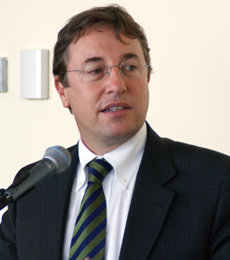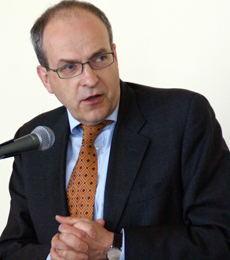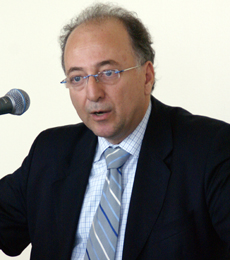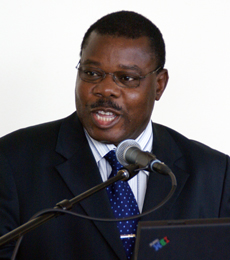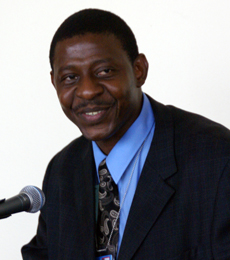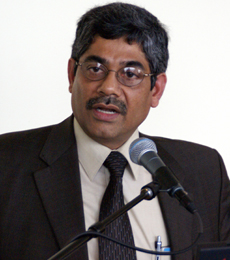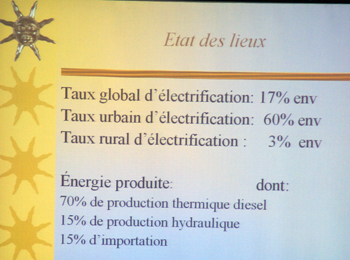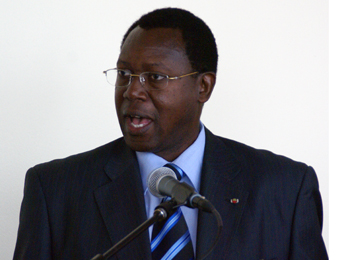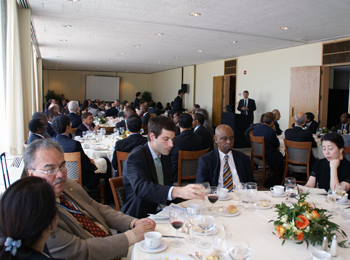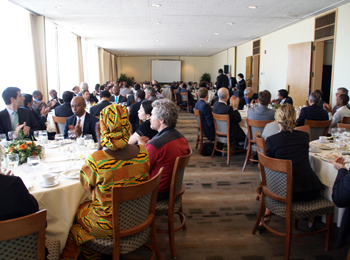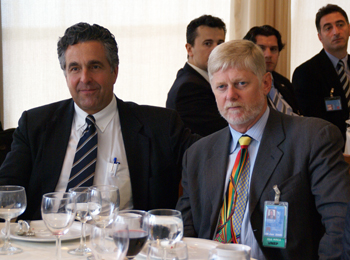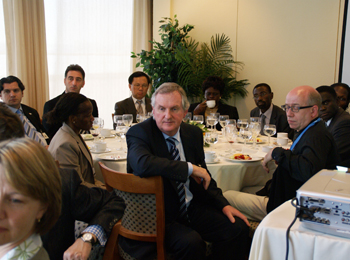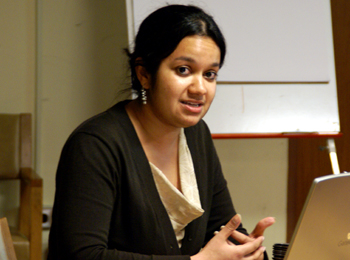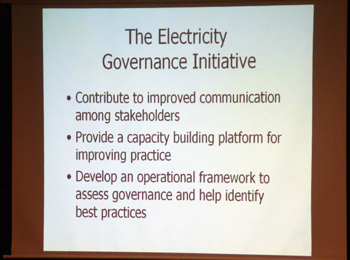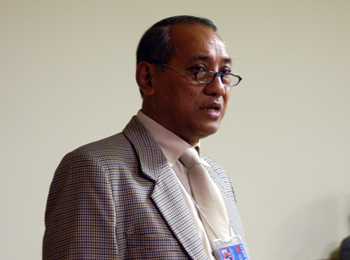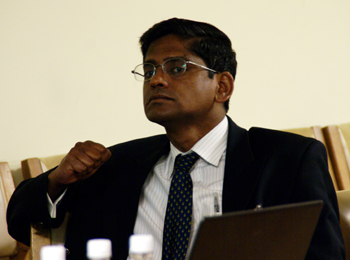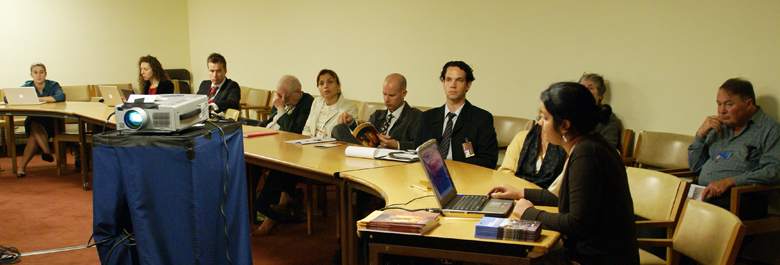 |
||
|
published by IISD, the International Institute for Sustainable Development
in cooperation with the UNDP Secretariat |
|||
|
Special Report on Selected Side Events at the Fifteenth Session of the Commission on Sustainable Development (CSD-15)
|
|||||
| 30 April - 11 May 2007 | United Nations headquarters, New York | |||||
 |
 |
|||
 |
||||
Events convened on Friday, 11 May 2007
|
Ad Melkert, Under Secretary-General and Associate Administrator, UNDP, welcomed attendees to the ministerial luncheon. Describing joint efforts between UNDP, UNEP and the World Bank to work towards better energy access in developing countries, he said that both international cooperation and national leadership are necessary to deliver tangible improvements to the lives of the poor. Achim Steiner, Executive Director, UNEP, stated that UNEP, UNDP and the World Bank recognize the need to continue to build on complementarities and synergies. He added that the energy debate relates not only to energy access and supply, but also to designing a system that does not lock the world into an unsustainably-large environmental footprint. Jamal Saghir, World Bank, noted the need for greater “energy interdependence” and energy trade between African countries. He said that financing is a critical challenge, stating that annual energy investment in Africa totals US $2 billion, but that US $11 billion per year is needed. Saghir concluded that countries, development partners, civil society and the private sector must work together to fuel growth and development. Alain Edouard Traore, CSD-15 Vice Chair, said that CSD-15 featured good participation but deep divides on energy and climate change issues. He called on ministers to find a way to work together to solve questions of access to energy for women, for the poor and for Africa. Laurent Sedogo, Minister for Environment and Life, Burkina Faso, outlined energy issues in his country, where 85% of energy is generated from biomass and only 3% of the rural population has electricity access. He expressed gratitude for World Bank and Danish assistance for connecting towns to the national grid, and UNDP support for a rural generators project. Salvador Namburete, Minister of Energy, Mozambique, expressed grave concern that CSD-15 text currently devotes only one paragraph to issues of energy in Africa. Highlighting the Maputo Declaration of the Forum of Energy Ministers of Africa, he called for coordinated action and technology transfer to achieve affordable access to energy in Africa. Vijay Iyer, World Bank, said the Maputo Declaration showed a collective commitment to addressing the energy problem, and needs to be translated into cooperation, investment, and better policy frameworks. He said that UNDP, UNEP and the World Bank’s joint work exemplifies increasing donor collaboration in the energy field. |
||||
|
|||
|
Euan Wallace, Foreign and Commonwealth Office, UK, moderated the event and discussed the UK’s involvement in Partnership for Principle 10 (PP10), which promotes public access to information, participation in decision-making, and access to justice as key principles of environmental governance. He highlighted two UK-funded projects to promote environmental democracy in India.
Smita Nakhooda, WRI, highlighted the “Electricity Governance Initiative” that analyzed the strengths and weaknesses in electricity governance in India, Indonesia, Thailand and the Philippines from a public interest perspective. Nakhooda noted that in general, very little information about the reasoning behind new policy initiatives is shared with the public and emphasized that attention to governance can help promote fair and innovative approaches to expanding energy access, address the environmental, social and economic impacts of new projects, and enhance equity and the affordability of tariffs. Noting the importance of forests for biodiversity and their ability to store carbon, Fred Stolle, WRI, outlined the rampant deforestation occurring in Indonesia, totaling approximately 2 million hectares a year, and discussed illegal logging’s contribution. He said that the Indonesia’s Ministry of Forestry has recognized the problem and is now working on a forest governance initiative, the Forest Monitoring and Assessment System, which aims to create transparency in the forest sector through making accurate and up-to-date forest sector information available to decision makers and the general public. Lalanath de Silva, WRI, discussed PP10, saying that it focuses on translating Principle 10 of the Rio Declaration into action to support transparent, inclusive and accountable decision-making for sustainable development. He explained that all partners, by joining PP10, commit to fulfill commitments such as improving performance in providing access to information. Hoetomo, Ministry of Environment, Indonesia, said that his country joined PP10 in 2006. He discussed Indonesia’s PP10 commitments to create better environmental governance by revising their environmental impact assessment process, and noted that during the revision they tried to shift authority from the provincial level to the district level to bring information closer to the public. After noting the largest importers of illegal logging products, participants discussed ways to strengthen legislation to combat illegal logging. |
|||
|
|||
|
||
|
Click the above button to go back to our ENB main coverage
|
||
|
|
|
|
|
||
|
